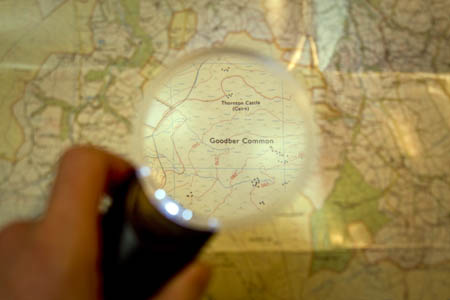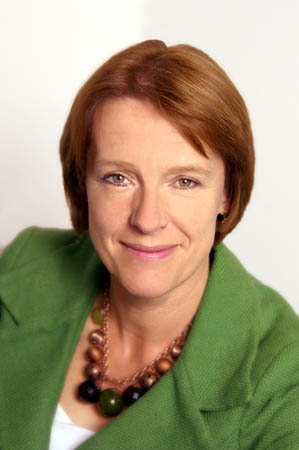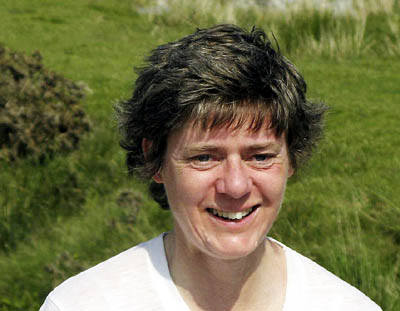The coalition Government today announced it was abolishing a panel of experts which deals with common land in England and Wales.
The Environment Secretary Caroline Spelman said she would axe the Commons Commissioners, which was set up to adjudicate on disputes into commons registrations, as part of a wider cuts to ‘arms-length’ bodies under the control of the Department for the Environment, Food and Rural Affairs.
But a campaigning body said there was still a need for experts who could determine disputes.
A Defra statement said the Commons Commissioners, a statutory body comprising expert lawyers in commons law, would be disbanded as part of reforms to some of the department’s 90 or so arms-length organisations.
The Commons Commissioners were appointed to adjudicate disputed applications to register common land and greens under the Commons Registration Act 1965. Defra said this work began in the early 1970s and has now been concluded, so there is no need for this body to remain.
But the Open Spaces Society, which campaigns for commons, village and town greens and footpath access, said abolishing the body would leave a need for disinterested inspectors with expert knowledge. Kate Ashbrook, the society’s general secretary, said: “We are sad to see the passing of the Commons Commissioners, who played an important role in determining the common-land maps of today, a band of erudite lawyers who travelled the length and breadth of England and Wales to hear objections against the registration of land as common, or disputes about common rights.
“They listened to obscure arguments and issued learned decisions. Forty years on, names like George Squibb and Alfred Baden Fuller still reverberate among commons communities.
“However, we do not agree that because their original work, of adjudicating disputed applications to register commons and greens under the Commons Registration Act 1965, has been concluded, there is no need for them.”
Ms Ashbrook said that updating of the common-land registers continues under part 1 of the Commons Act 2006.
“This is important work,” she said, “which includes the registration of ‘lost commons’ – land that was omitted from registration under the Commons Registration Act 1965 for various reasons.
“While there may be no need for the Commons Commissioners in their present form, there is a definite need for an expert panel of inspectors to determine disputed cases under the 2006 act. In particular, the inspectors need expertise in land law.”
Tory Caroline Spelman said: “This Government is committed to being the greenest government ever and the structural reform plan published last week sets out how Defra will play its part in achieving this. Reducing the deficit is priority for the Government and all departments are playing their part in making efficiency savings.
“Together with Chris Huhne [Liberal Democrat Secretary of State for Energy and Climate Change], I am determined to play the lead role in driving the sustainability agenda across the whole of government and I am not willing to delegate this responsibility to an external body.
“The effective delivery of public services is essential and I am committed to increasing the transparency and accountability of Defra’s public bodies and to reducing their numbers and costs. Times have changed since many of these bodies were set up and much of what they do is now everyday Government business.”
Thirty organisations are affected by the cull, which Defra said would make the department leaner and stronger.
But Kate Ashbrook said Defra concluded in January 2008 that it hoped to reach agreement with the Planning Inspectorate to establish a panel of independent persons to determine certain applications referred to it under part 1 of the 2006 act – for example ones where the commons registration authority had an interest, or which were particularly contentious.
Yet, she said, no more has been said about this. “It is inappropriate for the Planning Inspectorate to deal with this specialised work; the expert panel is needed,” she said.
Ms Ashbrook continued: “Part 1 of the Commons Act has been implemented in seven pilot areas in England but the timetable for extending it to the whole of England has been delayed. It should be implemented throughout England as a matter of urgency, and the expert panel should be set up.
“We also need the Welsh Assembly Government to implement the Commons Act in Wales as soon as possible.
“Ministers must recognise that commons are of crucial importance in delivering multiple benefits – for landscapes, wildlife and people.”
All Government departments were ordered by the Chancellor George Osborne to submit plans by last Friday for cuts of between 25 per cent and 40 per cent.



Geoff (Jaef) Parsons
23 July 2010I have yet to see the details of the announcement to do away with the Commons Commissioners (CCs) but in due course would hope to see details of the ways and means by which the role(s) and activities of the CCs will be progressed in the Big Society.
I suspect some of the quangos which have been or are to be abolished will be "reformulated" elsewhere. Perhaps we could keep tabs on them as "virtual quangos". For example, I perceive the to-be-abolished Infrastructure Planning Commission a a virtual quango. Most of the professional functions and activities will continue as intended under the "independent" IPC but they will be overlaid by some from of democratic laity (at an extra cost). Will the CCs go in a similar fashion?
PS I am trying to keep a score of new quangos which have been created by the new government.